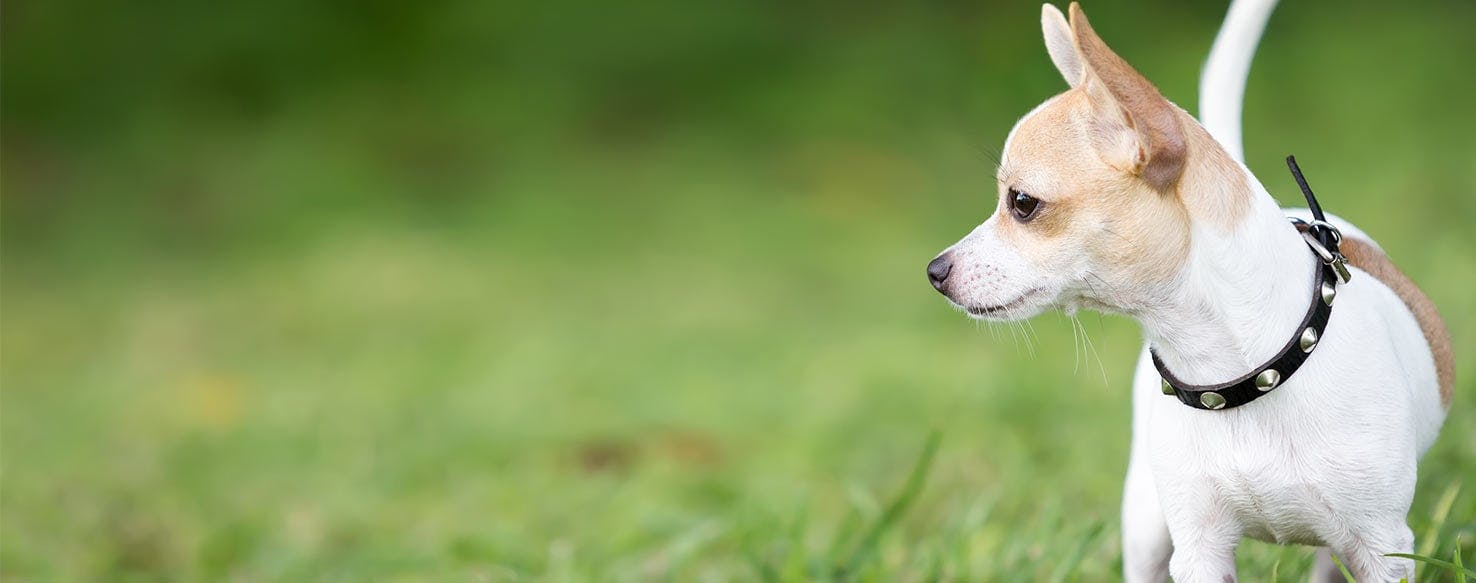- Home
- The Daily Wag!
- Behavior
- Why Do Chihuahuas Attach to One Person
Why Do Chihuahuas Attach to One Person

Common
Irregular
Introduction
Chihuahuas are one of the smallest and most popular dog breeds. Chihuahuas
are rumored to be descended from the Aztecs and the Toltecs. But other sources
claim that dogs similar to Chihuahuas have been featured in paintings from as
early as the 15th century in Europe. Whichever is the case, the Chihuahua
has become highly fashionable in recent years, since the tiny dogs are both loyal
and adorable. But, as is the case with other toy breeds, Chihuahuas may become
possessive of their owner to a fault, becoming aggressive or distrustful of
other people or dogs. Why do Chihuahuas become overly attached to one person?
What can you do about it?
The Root of the Behavior
Chihuahuas have been recognized by the AKC in the United States since 1904. Despite the many variances in size and color, there are only two varieties: the smooth and long-coat. Teacup Chihuahuas (which are not a recognized subclass of the breed), bred for their size and ability to fit into small purses and even pockets, are another reason Chihuahuas have become popular and fashionable. Chihuahuas tend to behave like many other terriers and small dogs, being high energy, brave, curious, and confident—sometimes aggressively so. It’s not unheard of for a Chihuahua to chase away or intimidate dogs much larger than themselves. For all their sass, most Chihuahuas enjoy an abundance of lap time and do not enjoy spending too much time outdoors. They are widely known to gravitate toward one person and reject new people, but that may be because dogs are more inclined to like those that are more in sync with their own personality. For example, high energy dogs are more likely to bond with a high energy person.
Toy breeds like Chihuahuas are often associated as “one-person dogs,” but this has less to do with the breed specifically than it has to do with how they’re socialized and raised. On the negative side of their reputation, Chihuahuas are often perceived as “yappy” or “mean.” Poorly trained and un-socialized toy dogs may be more prone to aggressive behaviors than the breeds often accused of being aggressive, such as Pit Bulls, Rottweilers, and Dobermans. The difference is that Chihuahua bites, while not enjoyable, do less damage than larger dogs. Perhaps that’s why some people dismiss aggressive Chihuahuas as harmless. Chihuahuas, just like every other breed, require a steady routine and plenty of training in their early development. They do well with consistency and discipline. They can be trained just like any other dog, and in fact, they are much happier and accepting of other people and pets when trained well.
Need advice about your pet's health?
Get answers fast from a veterinary professional 24/7 in the Wag! App.
Get Vet ChatEncouraging the Behavior
You can limit your dog’s possessiveness and tendency to cling to one person by starting training early, as early as possible. Even during the puppy stages, when you have to be cautious around other puppies and public spaces, you can begin exposing your dog to new people and pets. Have a friend or family member come to your house with their (fully vaccinated and healthy) pet. The more experiences your dog has early in life, the more likely they will accept new things later in life. Encourage other people to pet your dog, introduce not only other dogs, but children, cats, and other small animals.
Ask your vet and a professional trainer for advice on how to expose and introduce people and animals to your dog safely. If your dog is mistrustful of a specific family member (or members), there are plenty of ways you can encourage the bond between them. For starters, have your dog spend plenty of active time, whether it’s playtime with toys or walks around the block, with the family member your dog dislikes. You can also let your family member feed or give your dog treats. Food is a great motivator for dogs. Just be careful to give your dog the right size and amount of food and treats, since small dogs are more susceptible to obesity.
Other Solutions and Considerations
It’s always important to remember that all dogs are enormous responsibilities, not merely fashion accessories. As a pet owner, you’re not only responsible for feeding and housing your pup, you’re also required to put in plenty of effort in training and socializing. Poorly socialized dogs are those that may be fearful of new situations, people, and places. Those are the kinds of dogs who become aggressive toward others and overly protective of their favorite person. Just because Chihuahuas are cute and fit in your purse, it doesn’t mean that they don’t need the same kind of attention and effort that all other breeds require. You can’t keep your dog isolated forever, and not exposing them to other things is doing them—and everyone around them—a disservice.
Conclusion
It may be difficult to teach an old dog new tricks, but it isn’t impossible. If you have a Chihuahua who doesn’t like other people or animals, you can help them become more social with the right training, patience, and practice. Every dog can overcome its stereotypes, as long as you’re willing to put in the effort.
Up Next: Best Dog Food for Chihuahuas
Written by a Border Collie lover Charlotte Perez
Veterinary reviewed by:
Published: 03/28/2018, edited: 06/15/2023
More articles by Charlotte Perez
